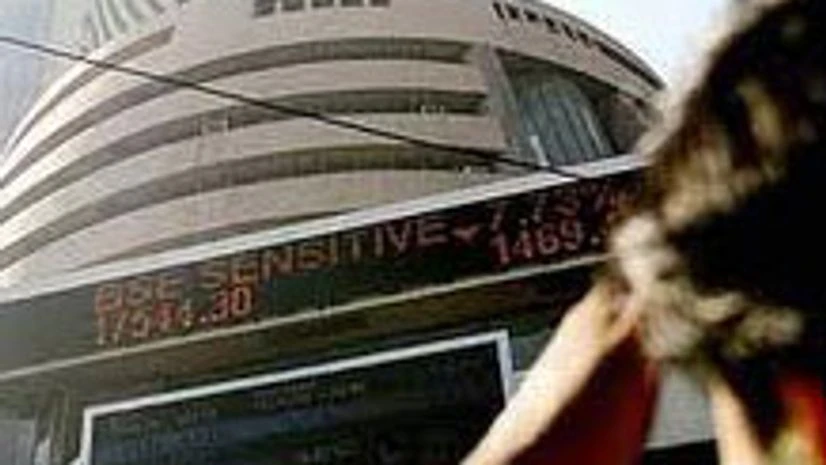Shares on Tuesday fell in reaction to the fall of the rupee after the Reserve Bank of India (RBI) left interest rates unchanged in its mid-quarter policy review. Market participants said lack of clarity on future policy action was seen as a negative.
The BSE Sensex ended the day at 19,348, down 245 points or 1.3 per cent from its previous close, while the NSE Nifty closed at 5,755, falling 77 points or 1.3 per cent.
“The markets were expecting a status quo on rates, but the tone adopted by the central bank has confused markets. It sent mixed signals to the market, which caused the rupee to decline and dampened sentiments in the equity market,” said Gaurav Dua, head of research at Sharekhan.
“The market will continue to remain under pressure. The commentary from the RBI governor was very subdued. There is vulnerability on external flows. All these factors will keep markets on tenterhooks,” said Sachin Shah, fund manager with Emkay Investment Managers.
RBI, in the last two weeks, had taken two separate measures to curb currency fluctuations. The central bank raised short-term rates and reduced the borrowing limits of banks to tighten liquidity in the system. Turn to TSI, Page 2 >
Keeping in line with this, Street expectation was that RBI would raise the cash reserve ratio, which did not happen.
“…RBI’s focus on macroeconomic stability and curtailing rupee deterioration rather than concentrating on easing inflation and promoting growth elicited a negative reaction from the market,” said Jayant Manglik, president of retail distribution at Religare Securities.
Interestingly, foreign institutional investors broke their two-day selling streak and were net buyers at Rs 256 crore. Domestic institutional investors were net sellers at Rs 415 crore.

Shares across interest-rate sensitive sectors witnessed a decline on the central bank’s status quo on interest-rates as well as the rupee decline.
“The high interest-rate scenario has been pinching companies in the banking, capital goods and auto sectors, among others. Any interest-rate related measure from RBI will only come after the rupee stabilises,” said Hemant Kanawala, head of equity investment at Kotak Life Insurance.
Opinion remains divided on the central bank’s next move. Some believe RBI will pull all stops to arrest rupee volatility, others said the decision on Tuesday meant that RBI was not willing to compromise on growth.
Among the Sensex stocks, ONGC saw the highest decline at 5.6 per cent, followed by Hindalco Industries and Tata Motors, which fell by 4.6 and 3.9 per cent, respectively.

)
